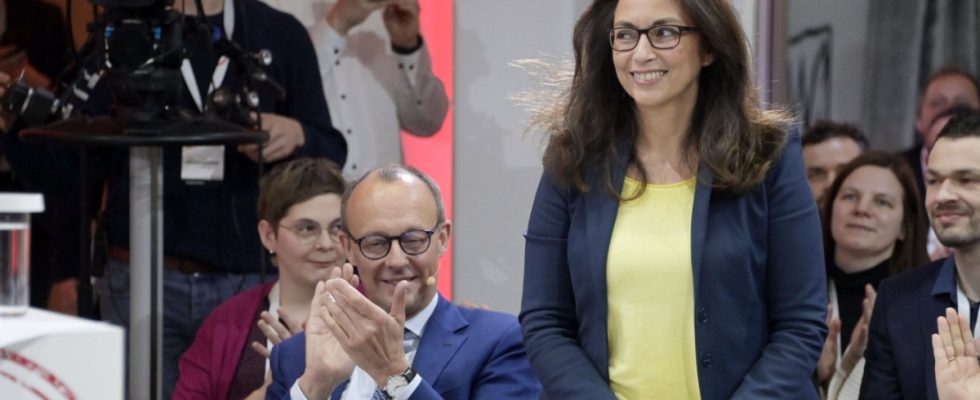These are numbers that must make every CDU campaigner sweat with fear. In the last federal election, only 22 percent of employees voted for the Union. Among blue-collar workers it was slightly higher at 23 percent. That’s far too little for a party that wants to become so strong that it can retake the chancellorship. Friedrich Merz also knows this.
But the CDU leader has a problem. Many people still see him more as an advocate for companies than as an advocate for employees. Merz worked for the investment company Blackrock. He was vice president of the CDU economic council. However, he didn’t have much to do with the workers’ wing of his party.
Karl-Josef Laumann should become CDU vice-president
But now there is movement in the CDU. At the federal party conference at the beginning of May, Karl-Josef Laumann is to be elected deputy CDU leader. The trained machinist is considered the social conscience of his party. He has been head of the Christian Democratic Workers’ Association (CDA) – that’s the official name of the workers’ wing – for almost 20 years. In addition, the CDU leadership invited works councils to a large conference at the Konrad Adenauer House last year. And this Wednesday there will be a discussion between the CDU presidium and DGB leader Yasmin Fahimi and the leaders of the individual DGB unions at the party headquarters.
Merz has been invited to the meeting and dinner – it should start at 8 p.m. Merz wrote in a circular email last weekend that “there are sometimes greater and sometimes lesser similarities” with the unions. The meeting on Wednesday will probably also focus on points on which there is no agreement at all.
Results that have already been announced are not expected at the meeting. The employee wing still welcomes the development. “I am pleased that an exchange with the unions is also taking place beyond the CDA,” says CDA deputy federal chairman Dennis Radtke. Especially in the area of industrial workers, there is “a huge gap in representation because the SPD has been greener than the Greens for years.” The CDU must now confidently fill this gap. “But you have to want that and do something about it,” demands Radtke. When it comes to industrial jobs, “the content is on the way” – in other areas “the journey is currently much longer”.
The workers’ wing calls for an “industrial deal”
The CDA therefore wrote an application for the CDU federal party conference, with Radtke in charge. The skilled workers and employees in industry would form “the working middle class as employed middle classes,” according to the application. Every industrial job that is lost means “a shrinking of the middle class and thus a strengthening of populist and anti-democratic forces from the right and left.”
The next EU Commission must therefore supplement its “Green Deal” with an “Industrial Deal”. And that is why energy and electricity costs in Germany need to be stabilized, network charges reduced, the infrastructure improved and the industry’s need for skilled workers secured. In addition, there should no longer be a “hit-and-miss policy” that overwhelms companies and society.
The unions are likely to like these demands. DGB leader Fahimi was at the works council conference at the CDU headquarters last year. Fahimi said at the time that the high energy costs, the inadequate infrastructure and the lack of skilled workers were also issues that concerned her.
However, she also made it clear that her trust in the reason and fairness of entrepreneurs is significantly lower than Merz’s. The company “missed a lot” when it came to digitalization, said Fahimi. And some business models – for example in the meat industry or delivery services – were only based on being able to exploit cheap labor. So there is a lot to discuss on Wednesday evening – between the CDU and the unions.

